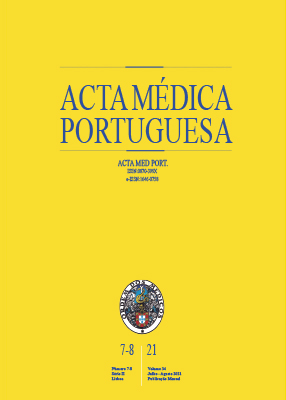Hypersensitivity Reactions to Vaccines: Current Evidence and Standards for SARS-CoV-2 Vaccines
DOI:
https://doi.org/10.20344/amp.16096Keywords:
Anaphylaxis, COVID-19 Vaccines, Hypersensitivity, SARS-CoV-2Abstract
The first reports of hypersensitivity reactions following the rollout of COVID-19 vaccination programs have raised public concern. Given the recent availability and novel mechanisms of COVID-19 vaccines, there is limited data on possible hypersensitivity reactions. Although it seems rare, the incidence of anaphylaxis for approved COVID-19 vaccines has been suggested as being higher when compared to previous vaccines. Adequate risk assessment, recognition, classification, and management of hypersensitivity reactions is crucial to ensure safe immunization and avoid misinformation and vaccine hesitancy. In this review, we present an overview of the types of hypersensitivity reactions that can potentially occur due to vaccination and the possible allergenic components of COVID-19 vaccines, as well as a suggestion for causality and risk assessment for the BNT162b2, mRNA-1273 and AZD1222 vaccines.Downloads
Downloads
Published
How to Cite
Issue
Section
License
All the articles published in the AMP are open access and comply with the requirements of funding agencies or academic institutions. The AMP is governed by the terms of the Creative Commons ‘Attribution – Non-Commercial Use - (CC-BY-NC)’ license, regarding the use by third parties.
It is the author’s responsibility to obtain approval for the reproduction of figures, tables, etc. from other publications.
Upon acceptance of an article for publication, the authors will be asked to complete the ICMJE “Copyright Liability and Copyright Sharing Statement “(http://www.actamedicaportuguesa.com/info/AMP-NormasPublicacao.pdf) and the “Declaration of Potential Conflicts of Interest” (http:// www.icmje.org/conflicts-of-interest). An e-mail will be sent to the corresponding author to acknowledge receipt of the manuscript.
After publication, the authors are authorised to make their articles available in repositories of their institutions of origin, as long as they always mention where they were published and according to the Creative Commons license.









